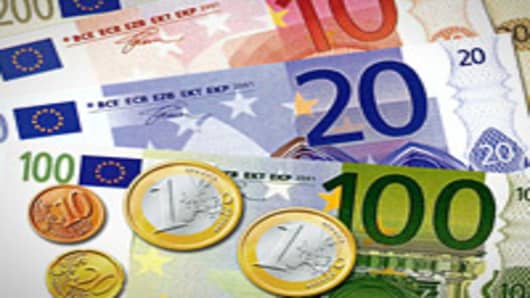European finance ministers are expected to approve today a plan to leverage—or increase the firepower of—the EU rescue fund, known as the European Financial Stability Facility (EFSF).
The plan, which is aimed at supporting heavily indebted euro zone members, has been greatly pared back from earlier ambitions.
Originally, the intent was to leverage the 440 billion euro ($587 billion) fund as much as four to five times. Now it is expected to be leveraged by two to three times, mostly because the appetite of private and public investors for European sovereign debt is far less than was hoped.
The idea of leveraging the EFSF came about as a way of expanding the scale—and hopefully effectiveness—of the EFSF without requiring the countries that initially created it to pony up more cash.
The exact details are still being hammered out. But here’s what seems to be under consideration.
Instead of just outright purchasing the bonds of struggling euro zone countries, the EFSF would use the bailout money to insure those bonds, guaranteeing up to 30 percent of each issue. That would make the debt much more attractive to investors—and it would allow the bailout fund to expand its reach, helping more countries than it could otherwise.
The exact amount of the guarantee will be depend on how difficult it is for the country to sell its bonds.
The insurance would be in the form of a tradable security that the EFSF would sell to investors, much like a credit default swap .
The EFSF might also form a separate entity—known as a special purpose vehicle—to issue its own bonds to investors, raising more money and further expanding the firepower of the EFSF. These vehicles would then use this money to buy sovereign debt or the EFSF insurance certificates.
The hope is that the bonds issued by the EFSF would pay far less interest than the bonds issued by the troubled countries, making it cheaper to support them. The buyers of the EFSF bonds would be protected from some losses.
If all this added debt sounds a lot like the same kind of leveraging that caused the financial crisis of 2008-2009, that’s because it is. The Eurozone financial ministers are attempting to abate the debt crisis through complex financial engineering.
Questions? Comments? Email us atNetNet@cnbc.com
Follow John on Twitter @ twitter.com/Carney
Follow NetNet on Twitter @ twitter.com/CNBCnetnet
Facebook us @ www.facebook.com/NetNetCNBC



